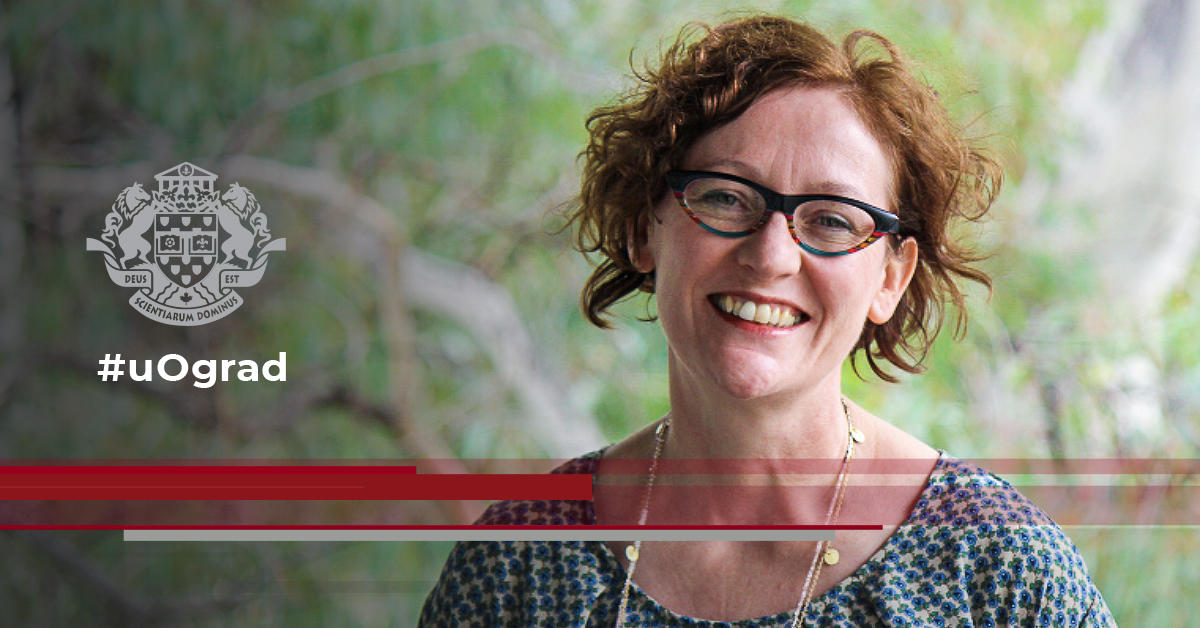Passion is central to the path travelled by Siobhán Airey, who received her doctorate in law at Spring Convocation. After working a few years for NGOs, she decided to return to school to pursue graduate studies in law, a natural choice for this recent graduate who chose an inspiring path.
Siobhán’s academic career began with a bachelor’s degree in communications, followed by a master’s degree in Equality Studies at University College Dublin. This interdisciplinary master's program examined equality issues from different perspectives, such as law, economics, and politics. “It was my first introduction to the fascinating field of law,” she says. She then had the opportunity to begin her career with various non-governmental organizations.
Her work experience confirmed her interest and led to enrol in a master’s degree in international human rights law (LL.M.) from the National University of Ireland. “I don't have a typical background. People often assume that legal studies are just for lawyers, but my interest centered on human rights, not the legal profession,” she says of her second master’s degree, which she completed part time while working full time.
“That's when I discovered international law, I mean, the architecture that determines how states interact with each other. The ties between law and global governance institutions were becoming clearer in my mind.”
Given that she hails from southern Ireland and that her family is very involved in community development, Siobhán Airey comes by her interest in promoting social justice issues quite naturally.
Answering the call to pursue research
Clearly, her intellectual thirst was not quenched. The idea of pursuing doctoral studies became a reality after she arrived in Canada in 2007.
“I wanted to engage in research in a more focussed and structured way. I promised myself that if I went back to school, it would be full time so that I could give it all my time and energy,” Siobhán says.
At the University of Ottawa’s Faculty of Law, she found the expertise and support she needed to advance toward her goals. She also found the expertise in international law that she was looking for in the areas of governance, human rights, economic development and the environment.
“I first came across the work of Professor Penelope Simons when I was doing my own research prior to enrolling in my PhD. Her research is so clearly argued and very accessible and innovative. I'm deeply grateful that she took me under her wing as my thesis supervisor,” she adds.
It was the start of another major step in her exciting academic journey.
“I jumped into this great adventure without really knowing what the outcome would be. But I was sure of two things: I knew how deeply interested I was in the field, and that I wanted to give myself the chance to undertake a substantial research project and devote a lot of time to it.”
Her determination led her to make the most of her doctoral experience. She followed the advice of her thesis supervisor and of Professor Heather McLeod-Kilmuray, then vice-dean of graduate studies, who encouraged her to take every opportunity to advance her research. These words of wisdom led her to open new doors and enrich her journey.
Blazing a trail
Although her path may seem like a series of successes and courageous choices, the researcher confirms that doubt and fear were also part of the process.
“Did I have any apprehensions? Oh, if only you knew! I had all of them! Self-doubt, financial stress, impostor syndrome… and I think part of those fears stem from the fact that the examples we have, and most pathways we come across, are still very “typical” and not very diverse. I don't mind being labelled as atypical, but I really hope that in the future, [my path] would not be considered atypical at all and that there will generally be far more people from a variety of backgrounds doing the same. There’s definitely a need to deconstruct and rebuild more inclusive institutions, and education is one of them.”
Her years at the University of Ottawa also taught her the importance of community support, and that there are many people we can count on to give us a hand along the way, including loved ones, relatives, and friends, but also professors, fellow students, and the staff members we see practically every day.
“I can’t stress enough the importance of the staff at the Faculty, in the Office of Graduate Studies and at the law library … They all became my anchors and I want to thank them,” she said.
Now that she has completed her thesis and earned her PhD, Siobhán is excited to pursue a career in research to foster a better understanding of the various aspects of international law and to find better ways of ensuring that international aid, including aid from Canada, has a genuinely positive impact on the people and communities. With this in mind, she is in the process of submitting a book proposal to Edward Elgar Publishing.
We wish her a brilliant career and continued passion and energy.
For more details about Siobhán’s research interests and academic background, visit the University of Ottawa Human Rights Research and Education Centre website.
